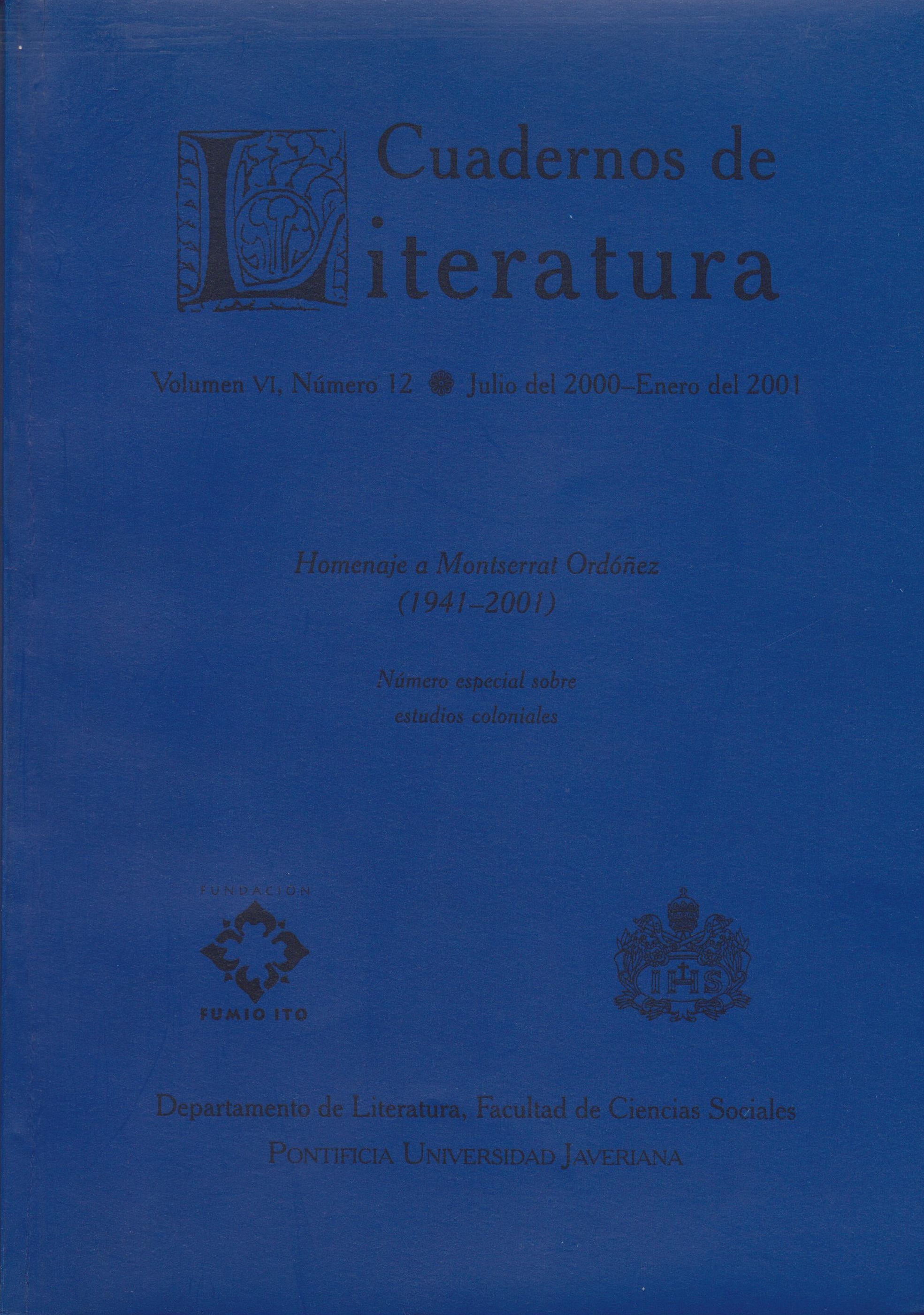Abstract
En Latinoamérica, tanto la literatura como los escritores de éxito han tendido a ser reverenciados como fuerzas edificantes que ayudan a unificar territorios geoculturales o nacionales. Con frecuencia son fuentes de orgullo, gloria y poder, y el espacio social en que se mueven ha estado por lo general vinculado por el poder político. La pluma y el cetro han ido de la mano en los casos de Domingo Faustino Sarmiento, José Manuel Marroquín y Rómulo Gallegos, quienes alcanzaron la presidencia en sus países, o de Gustavo Álvarez Gardeazábal, como gobernador del Valle del Cauca. También han estado cerca del poder Mario Vargas Llosa y Pablo Neruda, candidatos a la presidencia, y se han convertido en símbolos nacionales José Enrique Rodó, Pedro Henríquez Ureña, Arturo Uslar Pietri, Ángel Rama, Octavio Paz y Gabriel García Márquez, entre otros. ¿Acaso es responsable el intelectual que habla de literatura latinoamericana -y disfruta de un creciente y devoto auditorio- por la selección y los criterios de selección de textos y problemas para considerar? ¿Qué clase de responsabilidad tiene él con la recomendación de textos y la interpretación de ellos? Las respuestas a estas preguntas pueden ser tantas como el número de críticos que decidamos examinar, pero un asunto sobresale siempre que se aborda el tema de la responsabilidad del escritor y de los críticos: la política y sus implicaciones en el ámbito de la intelectualidad.Cuadernos de Literatura is registered under a Creative Commons Attribution 4.0 International Public License. Thus, this work may be reproduced, distributed, and publicly shared in digital format, as long as the names of the authors and Pontificia Universidad Javeriana are acknowledged. Others are allowed to quote, adapt, transform, auto-archive, republish, and create based on this material, for any purpose (even commercial ones), provided the authorship is duly acknowledged, a link to the original work is provided, and it is specified if changes have been made. Pontificia Universidad Javeriana does not hold the rights of published works and the authors are solely responsible for the contents of their works; they keep the moral, intellectual, privacy, and publicity rights.
Approving the intervention of the work (review, copy-editing, translation, layout) and the following outreach, are granted through an use license and not through an assignment of rights. This means the journal and Pontificia Universidad Javeriana cannot be held responsible for any ethical malpractice by the authors. As a consequence of the protection granted by the use license, the journal is not required to publish recantations or modify information already published, unless the errata stems from the editorial management process. Publishing contents in this journal does not generate royalties for contributors.


